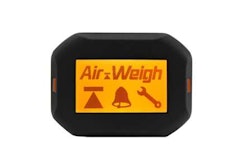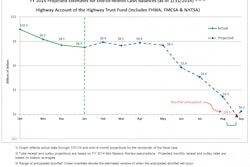You hear a lot of stuff on the road – over the radio, at the diner – and there’s plenty of room for bad information. One big category for that is income taxes.
Here are three of the biggest owner-operator tax myths. They come from Overdrive’s Partners in Business manual, prepared by our editors and the experts at ATBS, the nation’s largest owner-operator financial services provider. (The manual and other special trucking publications are available for order.)
 If you use a tax preparer, it’s a good idea to find someone with knowledge of the trucking industry so you don’t miss any trucking-related deductions.
If you use a tax preparer, it’s a good idea to find someone with knowledge of the trucking industry so you don’t miss any trucking-related deductions.MYTH: You should be incorporated.
FACT: Not necessarily. You need to save more on taxes than the cost of incorporating for it to make sense. Check with your tax preparer if you’re not sure. Learn more about your options for a business form in this piece from former Overdrive columnist Kevin Rutherford.
MYTH: You don’t have to make estimated tax payments.
FACT: With the level of revenue you get as an owner-operator, you can’t get out of these payments. You might feel like your costs are eating up every dollar you’re paid, but it doesn’t matter – Uncle Sam sees all the money changing hands and doesn’t want to wait for months to get his share. Payments are due April 15, July 15, Oct. 15 and Jan. 15. Miss those dates and you could face an IRS penalty.

MYTH: “Tax-deductible” or “writeoff” means getting something free.
FACT: A tax-deductible expense, such as mortgage interest, is deducted from your income. So you pay tax on a smaller net, usually reducing your tax bill between 15 percent and 30 percent.
There are only a handful of things that reduce your tax bill dollar for dollar. They’re called tax credits, and they have nothing to do with trucking. If you’re curious, here are “The five biggest tax credits you might qualify for.”










